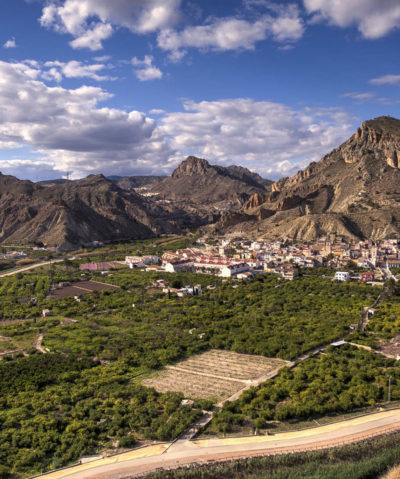ICOMOS (International Council for Monuments and Sites), in collaboration with ICOMOS Morocco, organizes the 19th Annual General Assembly (AGA 2019) in the city of Marrakech, Morocco, in October 12th and 18th, 2019. This time, the issue discussed is “Rural heritage, landscape and more”.
This important event will comprise a series of meetings of the ICOMOS International Board of Directors and the Advisory Council, a Scientific symposium, plenary sessions for the members of the different committees of ICOMOS, thematic workshops and conferences open to the public, exhibition spaces, and guided tours to several of the many cultural landscapes and sites that surround the city of Marrakech.
With this purpose, ICOMOS has launched its call for workshop proposals, as well as other forms of participation, to which we encourage you to participate.
Rural Landscapes
Rural landscapes, as well as the material and immaterial heritage of the rural areas, are an essential part of the World Heritage of Humanity. They are the living, dynamic systems, cultural, social and environmental, that cover this planet’s land and earth. They are both permanent and in a constant process of adaptation, and reflect thousands of years of interaction between human beings and the environment. Likewise, they constitute a synthesis of traditional and local knowledges, many of them essential in the fight against climate change.
The traditions and practices corresponding to rural heritage are linked to physical places, memory, oral transmission, and the everyday life of their communities.
 Rural heritage encompasses a great diversity of places, practices, and traditions that focus in habitat conservation and the production of food and fibers essential to human life, in line with the natural and cultural heritage. All of them present different ways of surviving, including rural tourism.
Rural heritage encompasses a great diversity of places, practices, and traditions that focus in habitat conservation and the production of food and fibers essential to human life, in line with the natural and cultural heritage. All of them present different ways of surviving, including rural tourism.
With the passing of time, many of these rural landscapes (farming or others) have suffered transformations with the introduction of new agricultural and technological practices linked to production, storage and distribution of food, and new social and economic conditions. This has led to a (sometimes negative) transformation of cultural and environmental terms.
Rural heritage encompasses a great diversity of places, practices, and traditions that focus in habitat conservation and the production of food and fibers essential to human life.
In this sense, the archaeological testimonies of heritage are vestiges of previous uses, which may still be valid today, in spite of having suffered some modifications. The traditions and practices corresponding to rural heritage are linked to physical places, memory, oral transmission, and the everyday life of their communities.
Protected areas
Some of these landscapes and rural communities are recognized as World Heritage by UNESCO, or as protected areas by the International Union for Conservation of Nature (IUCN), and other international organisms for recognition and preservation. And still, the rural heritage values are often unknown or underestimated, which stresses its exposure to the many transformation factors.

For this reason, in this period of fast and convulsive changes, of challenges linked to multiple factors, it is more necessary than ever to promote its recognition, value and preservation, as a global good of the planet and its inhabitants.
The richness of rural heritage includes physical attributes: rural or water heritage, natural resources, infrastructures, biodiversity, population, buildings and vernacular architecture, transport networks, and trade distribution. It comprises cultural knowledge, traditions, practices, the know-how, science, oral memory, expressions of local identity, as well as the cultural values linked to the heritage of previous communities.
In this period of fast and convulsive changes, of challenges linked to multiple factors, it is more necessary than ever to promote its recognition, value and preservation, as a global good of the planet and its inhabitants.
These attributes are in danger due to global growth, the movement of human population, climate change, and many other issues, which leave them at the mercy of degradation, loss and neglect of this extraordinary heritage.
Submit applications
The application to present workshops regarding this issue is divided in different themes: rural culture and heritage; rural economics and heritage; rural environment and heritage; rural society and heritage; Moroccan rural heritage.
These workshops will be presented under different forms, among them, the Knowledge café, Papers with panel discussion, and Optional formats.
Applications: Rural heritage, landscapes, and more.
This post is available in: English Español

